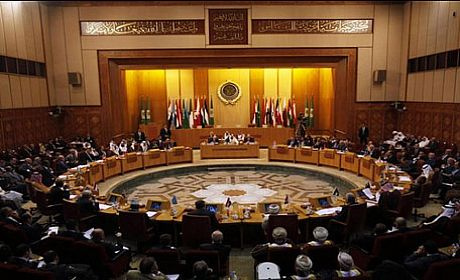Regional Package, Only Solution to Nuclear Deadlock

Why has Iran proposed that the crisis in Bahrain and Syria be discussed in Iran-P5+1 negotiations?
Until now, the issue of Iran's nuclear dossier was proposed as the only agenda of negotiations both by Iran and by the western parties and this has not succeeded. That is why this inclination has been created both in the West and in Iran that the collection of differences be discussed in one package. Now the issue of Syria and Bahrain can be an introduction to solve other issues, for these crises are the priorities of the western countries.
In her political will left for Mr. John Kerry, the new US Secretary of State, Mrs. Clinton has also mentioned the point that it is better for the US to discuss matters with Iran based on a regional package. She points to Iraq, Syria, Palestine, Lebanon, and the Persian Gulf, stating that Iran has the largest influence in these regions and a solution can be achieved based on a comprehensive agreement between the US and Iran. Iran also proposes this matter from the same angle. Therefore, it seems that the addition of some issues will not change the main subject.
In a letter to the foreign ministers of the P5+1 countries, Bahrain's Foreign Minister has called this proposal an interference in his country’s domestic affairs and has expressed his opposition. Will his opposition, in your opinion, ultimately be to Iran's disadvantage as the proposing party?
It seems that the reaction of Bahrain's Foreign Minister is totally natural, for two other countries will discuss the domestic situation of Bahrain in this process. But the acceptance of this issue by Iran and the West means that the crisis in Bahrain is not domestic but rather a regional and international one which should be solved with the help of regional countries and influential international countries. Bahrain's Foreign Minister still assumes that the crisis in Bahrain is a domestic problem.
Prior to the proposal of this idea, relations between Iran and the Arab countries were cold. Considering the reaction of the Persian Gulf Cooperation Council, will this issue lead to colder relations between Iran and the Arab states?
Relations between Iran and the Arab states depend on a collection of parameters which are mainly related to the issue of allies. Most Arab countries are allies of the western countries. Consequently, their relations with Iran are not very warm. Whatever is proposed as intensifying the contradiction is influenced by this factor. As a regional power, Iran is not an ally of the western countries while the Arab states are their allies. Therefore, this challenge and contradiction is not related to this issue and has existed since before. As in the past when such crises did not exist, relations were the same. Furthermore, some regional issues, such as the issue of Bahrain, cannot be domestic. The suppression of the Bahraini Shiites cannot be an internal issue. Nevertheless, the Shiite-majority Iranian society exerts pressure on the government to help these people. Ultimately, the government of Iran cannot remain silent with regard to the developments in Bahrain, as Saudi Arabia could not remain silent with regard to the crisis in Bahrain and dispatched military forces to this country to contain the uprising of the people. Hence, despite being domestic, such issues are regional and it will naturally be on the agenda of such negotiations whether the government of Bahrain likes it or not.
The Persian Gulf Cooperation Council and Turkey believe that they should also be present in Iran- P5+1 negotiations. Do they use the same logic to impact Iran's nuclear issue?
No. The Sheikhdoms of the Persian Gulf are seriously concerned about the Iran-P5+1 talks. In other words, they consider any compromise between Iran and the western countries to their disadvantage. That is why they have demanded to participate in these negotiations to prevent its damage. But they have no relation with Iran's nuclear dossier and, in the end, if Iran negotiates with the P5+1, it is because this dossier is in the Security Council and the members of this group are permanent members of the Security Council. Thus, Iran has accepted these talks based on political necessities and will certainly oppose the presence of Arab countries and other countries which intend to take part in these negotiations.

